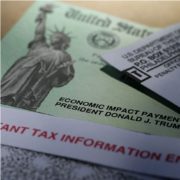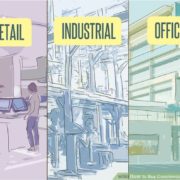Over the last 12 months, Many Domestic Businesses were able to take advantage of the Paycheck Protection Program, New Tax Deductions and Tax Credits spread over a handful of Federal Acts
- CARES Act §1102 (March 2020)
- PPPHCE Act H.R. 266; P.L. 116-139 (April 2020)
- PPPF Act H.R. 7010; P.L. 116-142 (June 2020)
- PPPE ACt P.L. 116-147 (July 2020)
- ACRR Act as part of Consolidated Appropriations Act H.R. 133 (December 2020)
As the tides begin to turn, hopefully, Businesses will continue to utilize these Federal assistance programs. More specifically for this article, Eligible Businesses may have all or a portion of their PPP loan forgiven if the loan proceeds are used for specified purposes.
Here are some notes and tips for any Business elligible for PPP Loan Forgiveness.
Also download our FREE PPP Loan Forgiveness Checklist.
Reach out to your CPA if you have any questions or want to talk more about your business.
In General
The borrower must apply for loan forgiveness within 10 months after the last day of the “covered period” (discussed later). (SBA 2020-0038) For most borrowers, the end of the covered period will be near the end of 2020. However, there was much confusion because the loan forgiveness forms display an expiration date of October 31, 2020.
In General PPP Loan Forgiveness FAQ #4, the SBA clarified that the expiration date in the upper right corner of the posted PPP loan forgiveness application forms is displayed for purposes of the SBA’s compliance with the Paperwork Reduction Act, and reflects the temporary expiration date for approved use of the forms. This date will be extended, and when approved, the same forms with the new expiration date will be posted.
Furthermore, borrowers may submit a loan forgiveness application any time before the maturity date of the loan, which is either two or five years from loan origination. However, if a borrower does not apply for loan forgiveness within 10 months after the last day of the borrower’s loan forgiveness covered period, loan payments are no longer deferred, and the borrower must begin making payments on the loan. For example, a borrower whose covered period ends on October 30, 2020, has until August 30, 2021, to apply for forgiveness before loan repayment begins.
AMOUNT ELIGIBLE FOR FORGIVENESS
The amount that may be forgiven is equal to the following costs incurred and payments made during
the covered forgiveness period beginning on the date their loan is funded:
• Payroll costs;
• Mortgage interest on a mortgage taken out by the borrower for real or personal
property that was in place prior to February 15, 2020 (not including prepayments);
• Rent on a real or personal property lease taken out before February 15, 2020; and
• Utilities for service established before February 15, 2020. (CARES Act §1106)
To qualify for full forgiveness, at least 60% of the loan proceeds must be used for payroll costs.
However, because the purpose of the program is to help employers maintain the employment of their employees (to protect paychecks), loan forgiveness may be reduced if:
• The employer reduces its number of full-time equivalent employees (FTEEs); or
• The employer reduces any of its employee’s rate of pay.
Eligible expenses expanded
The following expenses are now considered allowable and forgivable uses for PPP loan funds:
- Covered operations expenditures: Payment for any business software or cloud computing service that facilitates any of the following:
- Business operations;
- Product or service delivery;
- The processing, payment, or tracking of payroll expenses;
- Human resources;
- Sales and billing functions; or
- Accounting or tracking of supplies, inventory, records, and expenses;
- Covered property damage costs: Costs related to property damage due to public disturbances that occurred during 2020 that are not covered by insurance or other compensation;
- Covered supplier costs: Amounts paid to a supplier for goods essential to operations of the entity that are made pursuant to a contract, purchase order, or order for goods in effect prior to taking out the loan (before or during the loan covered period for perishable goods); and
- Covered worker protection expenditures: Expenses to help a loan recipient comply with federal health and safety guidelines or any equivalent state and local guidance related to COVID-19 during the period between March 1, 2020, and the end of the national emergency declaration. These include, but are not limited to, the purchase, maintenance, or renovation of assets that create or expand:
- A drive-through window facility;
- An indoor, outdoor, or combined air or air pressure ventilation or filtration system;
- A physical barrier such as a sneeze guard;
- An expansion of additional indoor, outdoor, or combined business space;
- An onsite or offsite health screening capability; or
- Other assets necessary to comply with various regulatory agency requirements.
Costs related to residential real property or intangible property are not eligible costs. (ACRRA §304(a))
These provisions are effective as if they were originally included in the CARES Act. As a result, they apply to all PPP loans, except for loans where borrowers have already received forgiveness.
DEDUCTIBILITY OF EXPENSES
The ACRRA makes it clear that no deduction may be denied, no tax attribute reduced, and no basis increase denied by reason of any PPP loan forgiveness under the CARES Act or the ACRRA. (ACRRA §276) This reverses the IRS’s position taken in IRS Notice 2020-32 that taxpayers could not deduct expenses that were paid with forgiven PPP loans.
California conformity
For taxable years beginning on or after January 1, 2020, California does not treat the forgiveness as COD income but disallows deductions for any of the amounts paid with forgiven PPP debt. (AB 1577 (Ch. 20-39); R&TC §§17131.8, 24308.6) Because California passed a law that specifically disallows
deductions for expenses paid with PPP loan amounts that were forgiven, absent subsequent legislation enacted in 2021, these expenses will not be deductible on the California return.
















